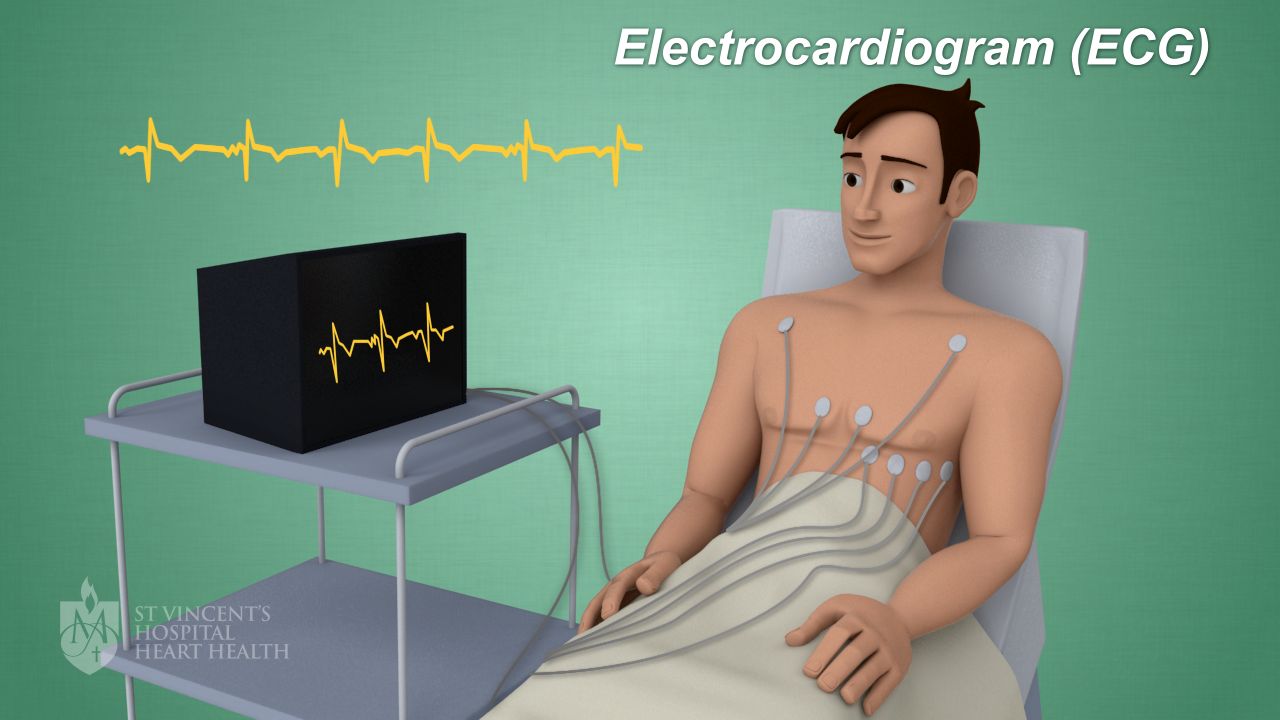ECG
An Electrocardiogram (ECG) is a test that is used to look at the heart's electrical function.
What is an ECG?
Why do I need an ECG?
What are the risks of having an ECG?
How do I prepare for an ECG?
What happens during an ECG?
What happens after an ECG?
What is an ECG?
An ECG (which stands for electrocardiogram) is a test that measures the electrical pulses that trigger your heartbeat. These pulses are recorded by electrodes that stick to your chest. They send signals to a machine called an electrocardiograph, which displays the results as a continuous wavy line with a series of spikes. Your doctor is then able to analyse the pattern and identify any problems.
This image below shows what happens during an ECG.

Why do I need an ECG?
Your doctor may recommend an ECG in order to:
- Diagnose irregular heart rhythm (arrhythmias)
- Identify any structural problems with your heart’s chambers
- See how effective any previous heart surgery has been
- Determine if you have coronary artery disease
What are the risks of having an ECG?
An ECG is a very safe procedure and there are virtually no risks associated with the test. You may experience very minor skin discomfort when the electrodes are removed.
How do I prepare for an ECG?
You don’t need to do anything to prepare for your ECG.
What happens during an ECG?
During an ECG test:
- You’ll lie on a bed in hospital or your doctor’s surgery
- Electrodes will be attached to your arms and chest
- You’ll be asked to lie still and breathe normally
- The electrodes will record your heart’s electrical activity
- The electrocardiograph will display the activity on a monitor and on paper
- Your doctor will examine the activity to determine whether it’s normal or irregular
The test takes just a few minutes.
What happens after an ECG?
If your ECG results are normal, your doctor will tell you if you need any further testing. Not all heartbeat irregularities can be recorded with a standard ECG, so if you have an irregularity that wasn’t detected, you might need to take another test called a holter monitor. If there were irregularities detected, you may need more tests or treatments. Your doctor will work out an appropriate plan to help manage your symptoms.